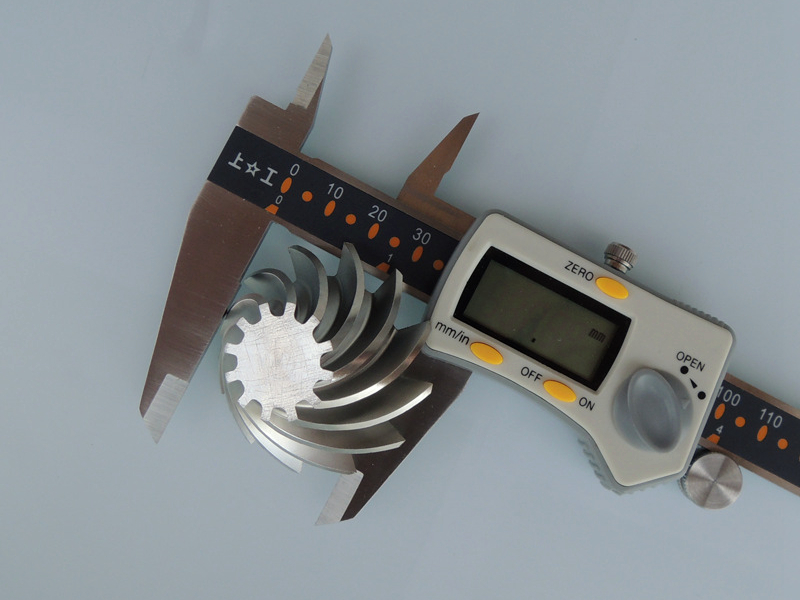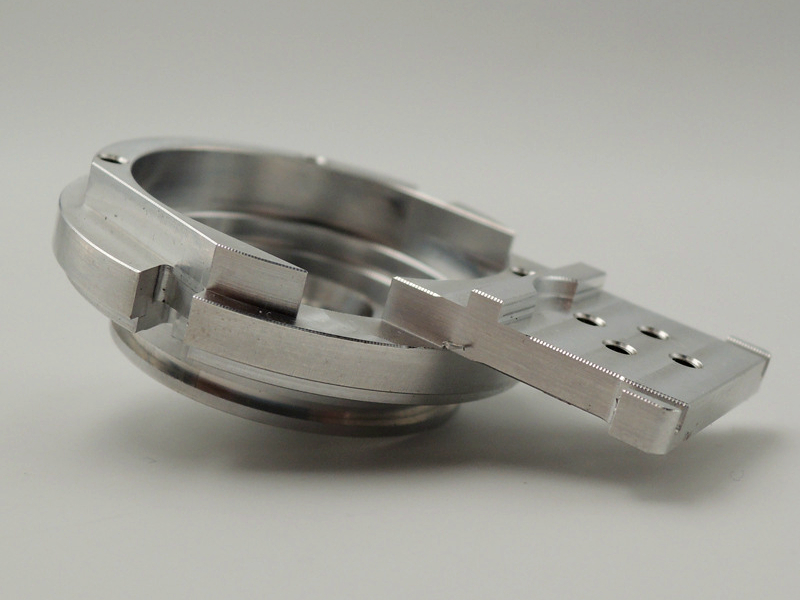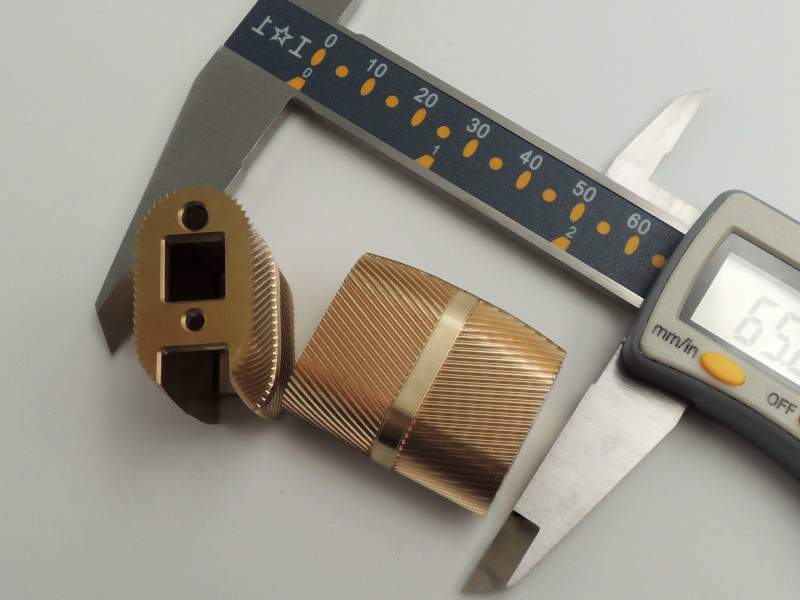Welche internationalen Normen erfüllen Neways Ultraschallprüfdienste?
Bei Neway zeigen wir unser Engagement für Qualität und Zuverlässigkeit durch die strikte Einhaltung international anerkannter Normen für unsere Ultraschallprüfungen (UT). Die Erfüllung dieser anspruchsvollen Vorgaben stellt sicher, dass unsere Prüfdaten genau, reproduzierbar und von Aufsichtsbehörden sowie Kunden weltweit in sicherheitskritischen Branchen anerkannt werden.
Weltweit anerkannte Qualitätsmanagement-Standards
Unser übergeordnetes Qualitätsmanagement-System bildet den Rahmen für alle technischen Abläufe, einschließlich der zerstörungsfreien Prüfungen.
ISO 9001 Qualitätsmanagement-Systeme
Als umfassender Anbieter von Präzisionsbearbeitungsservices ist unser Qualitätsmanagement-System nach ISO 9001 zertifiziert. Diese Norm bildet das Rückgrat unserer operativen Exzellenz und stellt sicher, dass all unsere Prozesse, einschließlich UT, konsequent gelenkt und fortlaufend verbessert werden. Sie fordert dokumentierte Verfahren, geschultes Personal und kontrollierte Gerätekalibrierung und schafft so Vertrauen in die Zuverlässigkeit unserer gesamten Leistungskette.
Kerntechnische Normen für die Ultraschallprüfung
Unsere UT-Methoden und die Qualifikation unseres Prüfpersonals richten sich nach folgenden zentralen technischen Standards.
ISO 17640 & ISO 23279: Schweißnaht- und Komponentenprüfung
Für die Ultraschallprüfung von Schweißnähten in metallischen Bauteilen arbeiten wir nach ISO 17640 (Zerstörungsfreie Prüfung von Schweißverbindungen — Ultraschallprüfung — Techniken, Prüfklassen und Beurteilung). Diese Norm legt Techniken für die manuelle UT-Prüfung von Vollnahtverbindungen fest und definiert Prüfungen und Akzeptanzkriterien. Zur Charakterisierung von Anzeigen verwenden wir außerdem ISO 23279 (Ultraschallprüfung — Charakterisierung von Unregelmäßigkeiten), um relevante von nicht relevanten Anzeigen in Bauteilen aus der Edelstahl-CNC-Bearbeitung und der Kohlenstoffstahl-CNC-Bearbeitung zu unterscheiden.
ASTM E317 & ASTM E587: Verfahren und Prüftechniken
Wir folgen ASTM E317 (Standard Practice for Evaluating Performance Characteristics of Pulse-Echo Ultrasonic Testing Systems) für die regelmäßige Überprüfung der Leistungsfähigkeit unserer Ultraschallgeräte. Für Kontaktprüfungen richten sich unsere Techniken nach ASTM E587 (Standard Practice for Ultrasonic Angle-Beam Examination by the Contact Method), was insbesondere für die Prüfung komplexer Geometrien wichtig ist, die durch unsere Mehrachsen-CNC-Bearbeitung entstehen.
Branchenspezifische Konformität
Wir passen unsere UT-Dienstleistungen an die strengen Anforderungen hoch regulierter Branchen an.
Luft- und Raumfahrtstandards (NADCAP-akkreditiert)
Für unsere Kunden in der Luft- und Raumfahrtindustrie erfüllen unsere Prozesse branchenspezifische Normen. Dazu gehören die strengen Anforderungen im Rahmen der Nadcap-Akkreditierung (National Aerospace and Defense Contractors Accreditation Program), die häufig auf Normen wie AMS 2630 (Inspection, Ultrasonic) und ASTM E2375 (Standard Practice for Ultrasonic Testing of Wrought Products) sowie kundenspezifische Spezifikationen für sicherheitskritische rotierende Bauteile verweisen.
Normen für Energie- und Stromerzeugung
Bauteile für die Energieerzeugung und den Öl- und Gassektor werden gemäß dem ASME Boiler and Pressure Vessel Code, Section V (Article 4 – Ultrasonic Examination Methods) und Section VIII (Rules for Construction of Pressure Vessels) geprüft. Dies ist entscheidend, um die Integrität hochbelasteter Komponenten zu bestätigen, einschließlich solcher aus anspruchsvollen Werkstoffen wie Inconel 718 und Teilen aus der Titan-CNC-Bearbeitung.
Qualifikationsstandards für Prüfpersonal
Die Kompetenz unserer NDT-Prüftechniker wird nach international anerkannten Zertifizierungsschemata nachgewiesen.
ISO 9712: Qualifizierung und Zertifizierung von NDT-Personal
Unsere UT-Prüfer sind nach ISO 9712 (Zerstörungsfreie Prüfung — Qualifizierung und Zertifizierung von Personal für zerstörungsfreie Prüfung) zertifiziert. Dies stellt sicher, dass sie über das erforderliche theoretische Wissen, die praktischen Fertigkeiten und die Erfahrung verfügen, um Prüfungen normgerecht durchzuführen und gültige, verlässliche Prüfberichte zu erstellen.
Umsetzung und kontinuierliche Verifizierung
Unsere Konformität ist nicht nur deklarativ, sondern wird durch ein robustes System aktiv umgesetzt und regelmäßig überprüft.
Kalibrier-Rückführbarkeit: Unsere UT-Geräte werden mit Normen kalibriert, die auf nationale Metrologieinstitute rückführbar sind.
Verfahrensqualifizierung: Unsere schriftlich fixierten UT-Verfahren sind für spezifische Geometrien und Werkstoffe qualifiziert und validiert – von Komponenten aus der Aluminium-CNC-Bearbeitung bis hin zu Bauteilen aus der Kunststoff-CNC-Bearbeitung.
Audits durch Dritte: Wir unterziehen uns regelmäßigen Audits durch Zertifizierungsgesellschaften und Großkunden, um unseren akkreditierten Status dauerhaft zu sichern.
Zusammengefasst sind die Ultraschallprüfdienstleistungen von Neway vollständig mit einem umfassenden Spektrum internationaler Normen, darunter ISO, ASTM und ASME, konform. Diese konsequente Ausrichtung an globalen Referenzstandards gewährleistet, dass unsere Prüfergebnisse das höchste Maß an Sicherheit für Qualitätssicherung und regulatorische Konformität für jedes von uns geprüfte Bauteil bieten.



